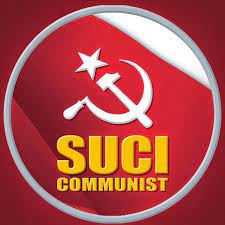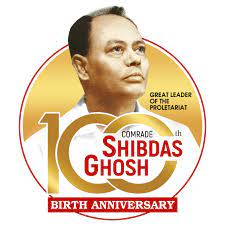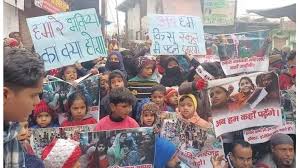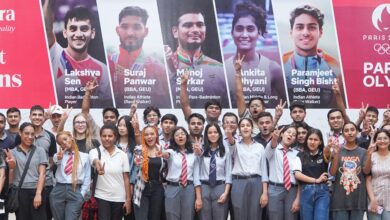SUCI (Communist) decry attempt to implement UCC riding on anti-Muslim hate campaign

SUCI (Communist) decry attempt to implement UCC riding on anti-Muslim hate campaign
Kolkota, July 15
The Socialist Unity Centre of India (Communist) has rejected the proposed Uniform Civil Code (UCC) in its’ present form in a submission to Law Commission on the issue.
Provosh Ghosh, General Secretary of SUCI stated in a latter to law Commission that “Our final submission is that UCC ought not to be enforced to legitimize a key agenda of arch Hindu communal forces who want its implementation not from the genuine desire of bringing equality, uniformity and amity among the various sections of the people but in the context of intensifying their anti-Muslim hate campaign by riding on the catchy slogan of “One Nation, One Language, and One Law”—a formula to implement their vile objective of creating a ‘Hindu Rashtra’ and ‘Hinduanizing’ Muslim or Christian people.
The SUCI said that “As Marxists, we earnestly desire a UCC to be applicable to all if and when it evolves with the consent of all sections of the people of the country through a scientific process of democratization of the society. That is what true secular democracy ordains. But that is subject to creation of a conducive socio-cultural milieu”.

The following is the entire text of the SUCI submission to Law Commission:-
Is the prevalent situation in India ripe for introducing UCC? Reality is, No. In multi-religious, multi-nationality and multi-ethnic India full of socio-cultural diversities, we have different laws for marriage, divorce, adoption, and succession, based on religious affinities and ethnicities. Personal laws are those that govern people based on their religion, caste, faith, and belief. These laws like Hindu Marriage Act, Muslim personal Law etc. have been formulated based on the religious texts and customs. The Buddhists, Sikhs, Christians, Muslims, Parses, and Hindus, and different tribes follow their respective distinct family laws or customs for the purpose of marriage, divorce, adoption, succession, property inheritance, etc. Even in the Hindu religion, many communities in different parts of the country do not follow the same practices in terms of marriage and divorce. Also, the tribal communities in India have different customary laws with respect to marriage, divorce, and inheritance. Moreover, certain provisions of Central laws like CrPC-1973 are not applicable to North-East regions. In Goa, the Muslims are governed by Portuguese law as well as the Shastra-based Hindu law, and not by the Muslim personal Law. Similar diversities are seen in Meghalaya and Nagaland also. Even in Jammu &Kashmir, the local statutes governing Hindus differ from the central enactments. It means that we cannot enact a ‘so called common law’ forcibly without being aware of all the relevant critical aspects. Therefore, all the social-cultural differences of the people must be kept in view before bringing in any reform on these vital issues. Any crucial reform without the consent and full agreement of the concerned people is precluded in democracy.
Obvious question is why such divides, diversities, different customs based on religion, ethnicity and region are persisting in Indian society today even after 75 years of independence? Fact is that there is definite socio-historic reasons for that. Our freedom movement, as is vouched by history, was not free from the influence of religion particularly Hindu religion. This religion-oriented nationalism alienated the broader Muslim masses from the freedom movement and prompted them towards preservation of Islamic religious customs inconsistent with the principles of a secular democratic society. This further widened the gulf between the Muslim masses and the nationalist forces. Moreover, there was domination of upper caste Hindus in the leadership of freedom movement. So, a vast section of so called lower caste Hindus, now known as dalits,the various tribal population and the underprivileged segments who professed different religions including Christianity remained out of the mainstream of Indian freedom struggle.Secondly, democratization of our society that would have helped all the diversities and differences among various communities to be abolished and dissolved into a single Indian national identity, did not take place. That has happened because our freedom movement ended in a half-baked and truncated way without undertaking the required socio-cultural reforms which would have helped the Indian people to be freed from the age-old creeds, customs, rituals, injunctions, religious backwardness and superstitions emanating from and nurtured in feudal orthodoxy.
These differences, contrasts, bigoted beliefs and prejudicesare still which are firmly entrenched in people’s mind in Indian society today as no effective socio-political-cultural initiative has been taken by the rulers of independent India to eradicate them. Rather, we are sorry to say, the rulers irrespective of hues have encouraged such backward, obsolete and regressive thoughts to be further instilled in mind. So, though we have politically emerged as a nation, we have remained disunited by religion, caste, language, race, ethnicity etc. In other words, the foremost task of integrating all the different communities of people, professing different faiths and following varied social customs,into a homogeneous nation remained unfulfilled because of absence of a due socio-cultural revolution to democratize the society. Of late, such religious-ethnic-casteist divides, instead of being abated, are exacerbated because of the flawed policies and practices of the present regime.
Not only that. Instead of coming out from all sorts of religious complexities by rising above religion and all other divisiveness, the rulers of independent India opted to advocate cultivation of Hindu religious values and preached mythological epics for building spiritual basis of Indian nationalism which, because of their failure to rise above Hindu religious practices, turned out to be, what is called, a Hindu nationalism.
Further, a myth is being created by vested interest that the Hindus are governed by one personal law. But this is not true at all. History is that after independence, a Draft Hindu Code bill prepared by the Hindu Law Committee in 1947 sought to bring many reforms in the then existing practices like polygamy, recognition of property rights of the daughters etc. Under Hindu Marriage act, a marriage is valid even if not registered provided certain ceremonies like saptapadi or saat phere (seven rounds by the bride and bridegroom around fire) are performed. Many males while going for a second marriage in public with pomp and show, deliberately omit certain parts of the ceremony to give law a miss but elicit social sanction. That is why, though bigamy is prohibited in Hinduism, it is prevalent among a sexcction of the Hindus. Similarly, most of the Hindus do not follow the codified Hindu law but the customary laws prevalent in their own kinship groups or religion. For instance, marriage among close relatives is prohibited in north India but is considered auspicious in some areas of the south, also amongst the Muslims. In the name of preservation of purity of Hindu religion and so called ‘parampara’ (lineage), ‘riwaz’ (practice) and ‘sanskriti’ (culture), what is being justified is patriarchal domination and subjugation of women as well as unquestionable allegiance to blind religious faith. Above all, they hold that Hindutva, the doctrine they preach in the name of Hinduism, is inviolable and supreme. Hence its prescripts cannot be questioned.
On the other hand, as regards divinity of Muslim personal law claimed by the Islamic fundamentalists and bigots, a similarity in tone and texture can be found with the argument of the Muslim fundamentalists, clergies, and social touts. Is ‘Muslim Personal Law’ enshrined in the holy Quran or derived from Shariat? Are the Shariat and the holy Quran one and the same? No. Shariat is not ‘divinely ordained’. In order to solve social problems that started emerging when Islam spread beyond the Arabian soil, people used to seek the opinions of eminent personalities who were known for their deeper understanding of the sacred scripture, virtuous reflections, and moral character. All these personalities gave rulings based on their own realizations of Islam and its directives. These are all summarized in the Shariat about which also differences persist between Shia and Sunni Muslims.
What is noteworthy is that in so far as justifying religious edicts, customs and obstinacy as ‘will of god’, the self-proclaimed protectors of respective religions, are discernibly strange bedfellows.
It is to be understood that the concept of UCC emerged in the minds of the well-intentioned people as a corollary to the democratization of society. So, in a genuine secular state, the civil legislations governing the different sections of the people have to be one and the same. Religion would be a matter of personal belief and state jurisprudence should not distinguish between women or men belonging to different religious faiths or belonging to non-believer category. Democratic concept of life views marriage as a social relation between a man and a woman based on recognition of mutual values and upholding of each other’s dignity. Mutual consent or freedom of choosing life partner should be the foundation of matrimonial relation. Religion, caste, ethnicity—nothing should come in the way of such union. But cross-sectional marriage, freedom of choice, leading a social life free from encumbrance of religious fiats, honouring and protecting the dignity of others, making no discrimination between male and female, no distinction between persons of different faiths or ethnicities etc. cannot be guaranteed unless there are common laws, statutes appearing through the voluntary consent and agreement of all sections of the people.
Does the prevailing Indian reality conform to such pre-conditions? If the kernel of real UCC is correctly understood, can ridiculous narratives like ‘love jihad’, honour killing, prevention of inter-faith marriages even by the state and lynching in the name of cow vigilantism go on unabated? Can open hate campaigns against and persecution of religious minorities coexistin a nation under a UCC which calls for the formulation of only one personal law for India applicable to all citizens equally regardless of their caste, creed, religion, ethnicity and gender? In other words, can there be one law applicable to all religious communities in matters such as marriage, divorce, inheritance, and adoption right at this moment? Is it by any stretch of imagination a sound proposal? We believe it is not.Is the time ripe for UCC when the state of Manipur is witnessing a blood-curdled ethnic violence and sporadic eruption of communal-casteist-ethnic-chauvinist conflicts in various parts of the country? Secondly, in the popular imagination, the UCC is supposed to do away with personal laws. Can that happen in present India where fundamentalist-communal-casteist-ethnic feuds and religious orthodoxy are ruling the roost? Should not all such malaises, obduracies and aberrations be first removed through the process of democratization? Uniformity does not entail forcible integration of people, but calls for persistent persuasion based on democratic values, ethics, and moralities. For that the state ought to honour and be governed by true secular principles.
So, when there is prevalence of growing disunity, how far prudent it is to inject a code of unity? The justifiability of UCC and social necessity of its enforcement overriding all petty sectarian interest and motive of the forces of reaction is to be realized first. Pending that, imposition of UCC would only aggravate the disunity and divides, mistrusts as well as disharmony among the various sections of Indian citizens.
It is pertinent to recall that the framers of Indian constitution discussed the issue of adoption of a Uniform Civil Code and felt that time was not appropriate to adopt such an UCC simply by discussion and voting in the constituent assembly. In that case, they had rightly apprehended, UCC would be rendered ineffective. Viewing the overall situation, they decided to put it in the category of ‘Directive Principles of State Policy’. While formulating the Constitution, Dr B. R. Ambedkar, the Chairman of the Drafting Committee of the Constitution, had said that it is desirable to apply a uniform code throughout the country by first addressing the discrimination against vulnerable groups and harmonizing diverse religious-ethnic-casteist groups across the country through a proper process. The framers of the constitution dictated by need of that time did frame Article 44 as a guarantee of equal citizenship but that was made to remain voluntary for obvious reason.Then, what should be the approach until the time that Article 44 is made mandatory? This is where Article 35 comes in. This article states that the power to make laws, to give effect to certain specified fundamental rights shall vest only with the Parliament and not in the state legislatures.
Crucially, the 21st Law Commission formed in 2016, not only called the UCC “neither necessary nor desirable,” but also recommended ending gender discrimination and doing away with inequality first. “This Commission has therefore dealt with discriminatory laws rather than providing a uniform civil code which is neither necessary nor desirable at this stage. Most countries are now moving towards recognition of difference, and the mere existence of difference does not imply discrimination but is indicative of a robust democracy,”observed the Commission. Also, on the first page of the consultation paper, the 21st Law Commission made it clear that no consensus could emerge on the UCC, and therefore, the need of the hour was “to preserve the diversity” without contradicting the fundamental rights. “In the absence of any consensus on a uniform civil code the Commission felt that the best way forward may be to preserve the diversity of personal laws but at the same time ensure that personal laws do not contradict fundamental rights guaranteed under the Constitution of India,”mentioned the consultation paper. We feel the observation of the 21st Law Commission was objective. But then why has there not been any discussion on the views expressed by the 21st Law Commission? What has been the pressing necessity to bypass it completely and constitute a new Commission by merelyciting the reason that the consultation paper is now more than three-years-old? What prevented the government to logically prove that the 21st Commission was wrong in its assessment? What prompted the ruling dispensation to skirt the previous Commission, constitute the 22nd Law Commission which has once again solicited the views on the UCC by issuing a notice on 14 June 2023?
There are some people who are seeking legal remedy to such diversity and religion-related problems. As the problem demands to be viewed not from the angle of preserving any religious-ethnic identity, it should not be a legalistic battle only. If anything is forcibly imposed from outside even in the form of a law, that might provide handle to the fundamentalists in projecting the same as subversive of the right to religion and inciting the masses based on religious appeal. The demand for change must come from within the suffering masses as a conscious urge. It must dawn upon all of us that it is legitimacy which should prevail over legality. All laws are man-made. In course of man’s struggle for social progress, some of these laws came into being to meet the then social necessity.But with passage of time, many of such laws have been changed or dropped in keeping with the emerging social needs of changing panorama, or in other words, legalize the legitimate. So why view any law as sacrosanct and immutable? From what has been stated above, it should be evident that adoption of a scientific process to gradually abolish all the diversities, blind faith, penchant for sticking to religious-ethnic inflexibilities, mutual hatred and distrust is sine qua non before any thought is to be given on introducing UCC. Avoiding the arduous process of undertaking a great deal of prior discussions, persuasions, touching all minds with rationality with a view to enabling them having correct approach to end the prevailing differences and come out of the shackle of exclusiveness thereby obtaining voluntary acceptance and consent of all the sections of people of the country, it is never possible to create a congenial atmosphere for introducing UCC. In fact, not only the Muslim and Christian communities, even the Jains, Parsees, Sikhs and the tribal populace have staunchly opposed UCC at this juncture. We reiterate that introduction of UCC, that does not discriminate between individual citizens on the basis of caste, community, religion, or gender over personal customs and practices relating to marriage, divorce, adoption, and succession but does guarantee equal right to all in socio-political-cultural affairs, is to be considered appropriate after fulfilling all the necessary conditions for its smooth and acceptable implementation. People’s unity, communal-ethnic-casteist harmony, end of religious intolerance and abolition of regional-linguistic sectarianism are the essential pre-conditions to be fulfilled. Uniformity does not entail forcible integration of people but evolving that desired amalgamation through avid pursuit of the historically laid-down course.
It is earnestly solicited that Hon’ble members of the 22nd Law Commission take a realistic view of the situation in the country, take into account all relevant factors and inhibitions, dispassionately examine the arguments placed above on the anvil of time-tested logic and truth and then come to a rational conclusion free from the influence of any external power.






